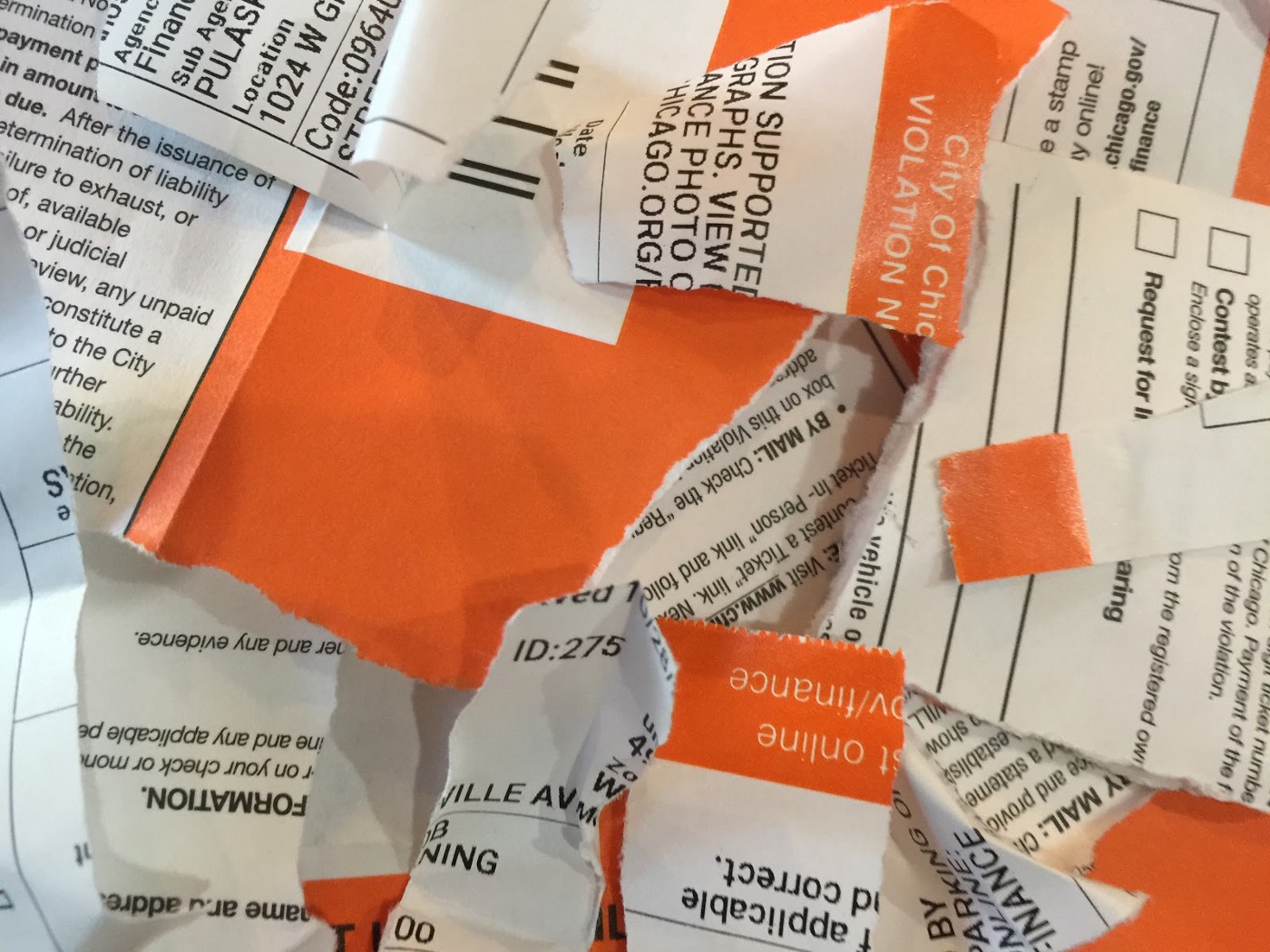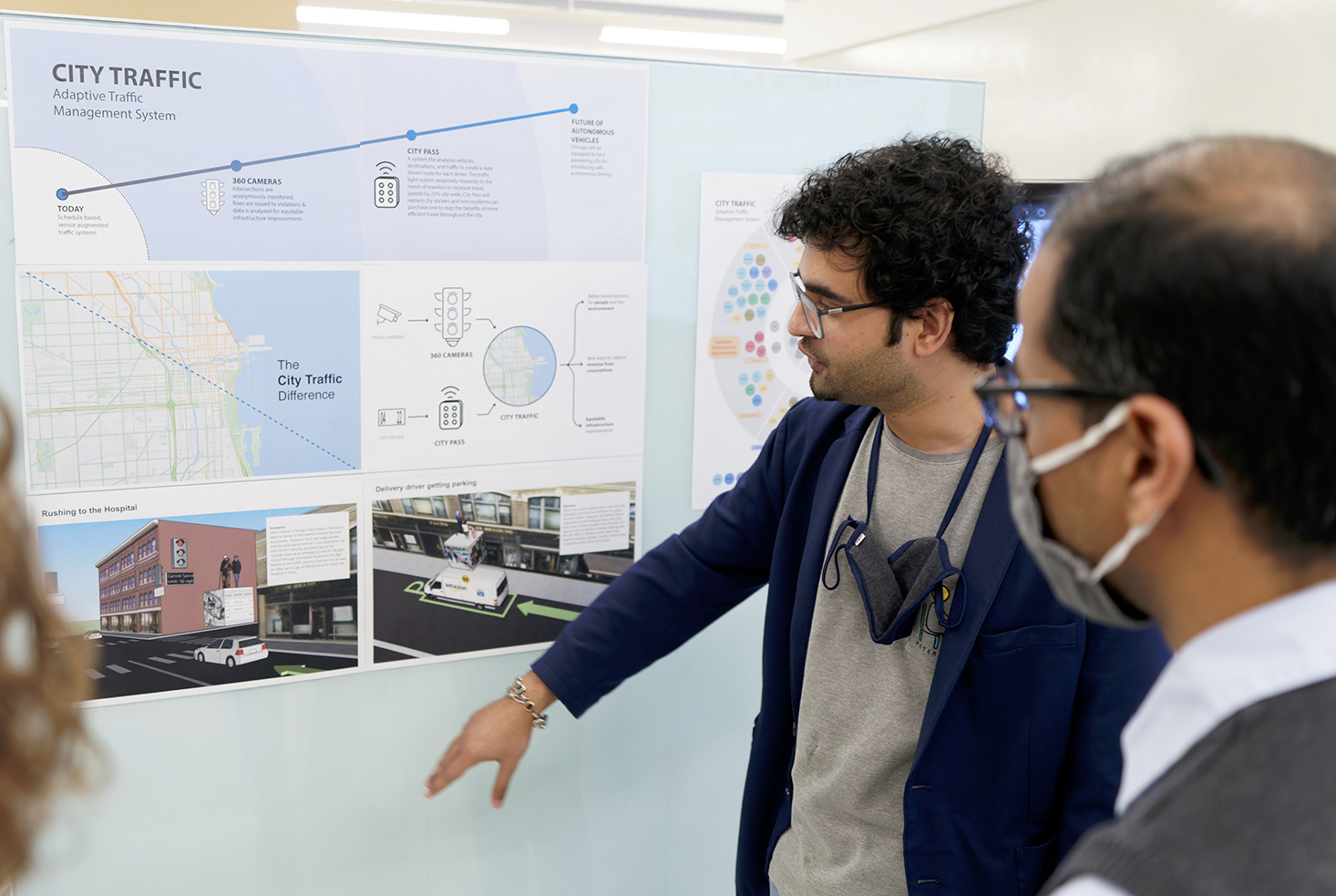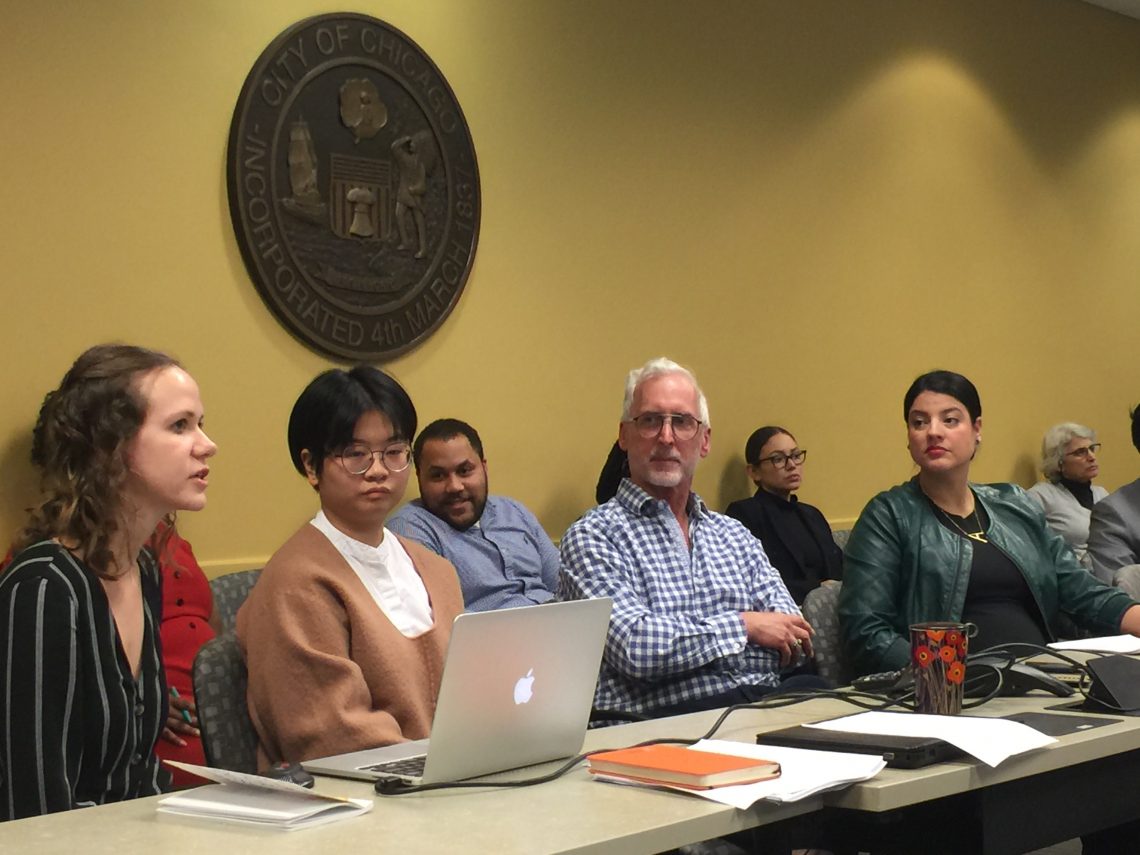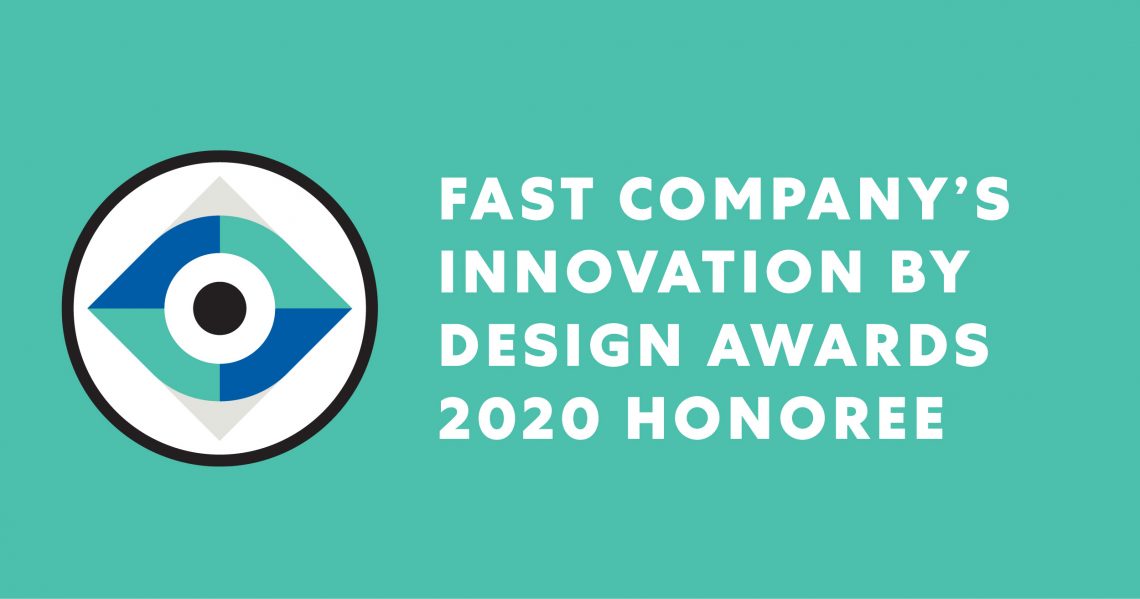Partnership with City Clerk’s Office Aims to Reform Fines and Fees
By Deborah Shelton
September 30, 2022

When Chicagoans are navigating the city in their cars, any number of things can go wrong: No parking. A speeding ticket. A hefty fine or fee.
But the fallout is not felt equally.
That’s because the city’s ticketing and traffic management system reinforces social and economic inequities that disproportionately burden African American and Latinx residents, who are more likely to be low-income.
Reforming fines and fees with the city clerk
ID and the City of Chicago partner to redesign city systems and services for equity, justice, and safety.
The cost of citations and tickets from red light cameras, speeding cameras, and parking meters can quickly add up. One ticket can trigger a chain reaction—hundreds or thousands of dollars in late fees, car impoundment, and driver’s license suspension. Job loss and crippling debt can follow.
Tackling the problem, a 20-person team of student designers at the Institute of Design at Illinois Tech took part this spring in the graduate school’s Sustainable Solutions Workshop, which was held in partnership with the City Clerk’s office.
During the 14-week workshop, students brainstormed ways to reform revenue policies and practices with the aim of creating a more equitable and sustainable city. Their innovative solutions went beyond the scope of the project to examine how to make Chicago safer, healthier, and easier to navigate for both drivers and pedestrians.
One of the students, Kat Reiser, was inspired by the project’s potential to better people’s lives.
“I came from a background designing products,” says Reiser, now a design strategist for national consulting firm Booz Allen Hamilton. “Little pieces of molded plastic can only be so meaningful. So, I was really excited that the project had an equity-driven mission. It was also in the public space so it was something that people are going to interact with.”
ID students present their vision for a more equitable and sustainable Chicago.
To the average person, government agencies that manage traffic and administer fines can seem like “black boxes” because it isn’t clear how they operate.
People’s lives could be radically improved, he says, if products and services that perpetuate inequities were reimagined.
For example, an object like a parking meter looks simple, but it’s part of multiple interconnected systems— financial, regulatory, and transportation, explains Teixeira, who has taught the workshop since he joined ID in 2016. All those systems come together in the basic transactions that we do, “which can have a big impact on our daily lives,” he says.
Student-designed prototypes from the workshop include:
- A traffic system that uses artificial intelligence (AI) and sensors to measure air quality and ensure safer and more efficient use of the roads for automobiles, pedestrians, public transit, and commercial vehicles.
- A use-based fee system for commercial vehicles that creates new and fairer revenue streams to help ease the financial burden on residents. A 360-degree camera identifies the type of vehicle being driven via a “connector city sticker” and determines an appropriate user fee, guaranteeing that vehicle owners pay an amount proportional to their use of city infrastructure.
- Reconfigured bus stops in low-income neighborhoods that serve as mini civic centers, providing accessible ways for residents to give real-time feedback to city officials and communicate directly about their mobility needs.

In the world that students envisioned, the timing of traffic lights would be personalized for specific pedestrians, such as a person in a wheelchair, to allow adequate time to traverse a particular crosswalk. Data that’s collected would make it possible to distribute resources for neighborhood infrastructure, such as roadways, based on community need. Delivery vehicles would be able to quickly locate parking availability to avoid parking illegally, which could both inconvenience others and result in a ticket.
Transformation in traffic management will ultimately come about through the private sector, Teixeira says. Government has the regulatory structure for enabling change, but not the entrepreneurism or design thinking and training, he says.
Brand new markets could open up with competition driving innovation and profits. Ideas advanced by workshop students for revamping the traffic management system could potentially evolve into a billion-dollar market, Teixeira says.
City Clerk Anna Valencia has committed to reforming Chicago’s fines and fees system, and city officials are already exploring ideas developed in the workshop.
Although the students’ prototypes were conceived with Chicago in mind, they could be replicated in any number of cities across the United States and worldwide, Teixeira says.
A system designed to be less punitive and focused more on safety and fairness would build trust and improve relationships between residents and their governments, no matter where they are.
While workshop students had a wealth of ideas, sometimes conflicting, Reiser says, “in the end, we prioritized the needs of communities of color who we were hoping to design for.”
What she learned has come in handy in her new job.
“I’m glad I had that time to process the concepts we were teasing apart,” Reiser says. “Now I have the tools to better grapple with that complexity.”
For more information, visit the project website.
Tags:
Students
- Abigail Auwaerter
- Alison Chiu
- Jerick Evans
- Symone Fogg
- Katherine Gowland
- Rosanna Lederhausen
- Brayan Pabon Gomez
- Meghna Prakash
- Siyuan Teng
- Xuan (Joanna) Zhou
- Ujjwal Anand
- Kota Fujikawa
- Ruohua Huang
- Arijit Patra
- Takuya Isogai
- Sanhyong Park
- Kat Reiser
- Jeff Sprague
- Takeshi Tanaka
- Kazumasa Yamada
Faculty
- Carlos Teixeira
- Ruth Schmidt
- Christopher Rudd

